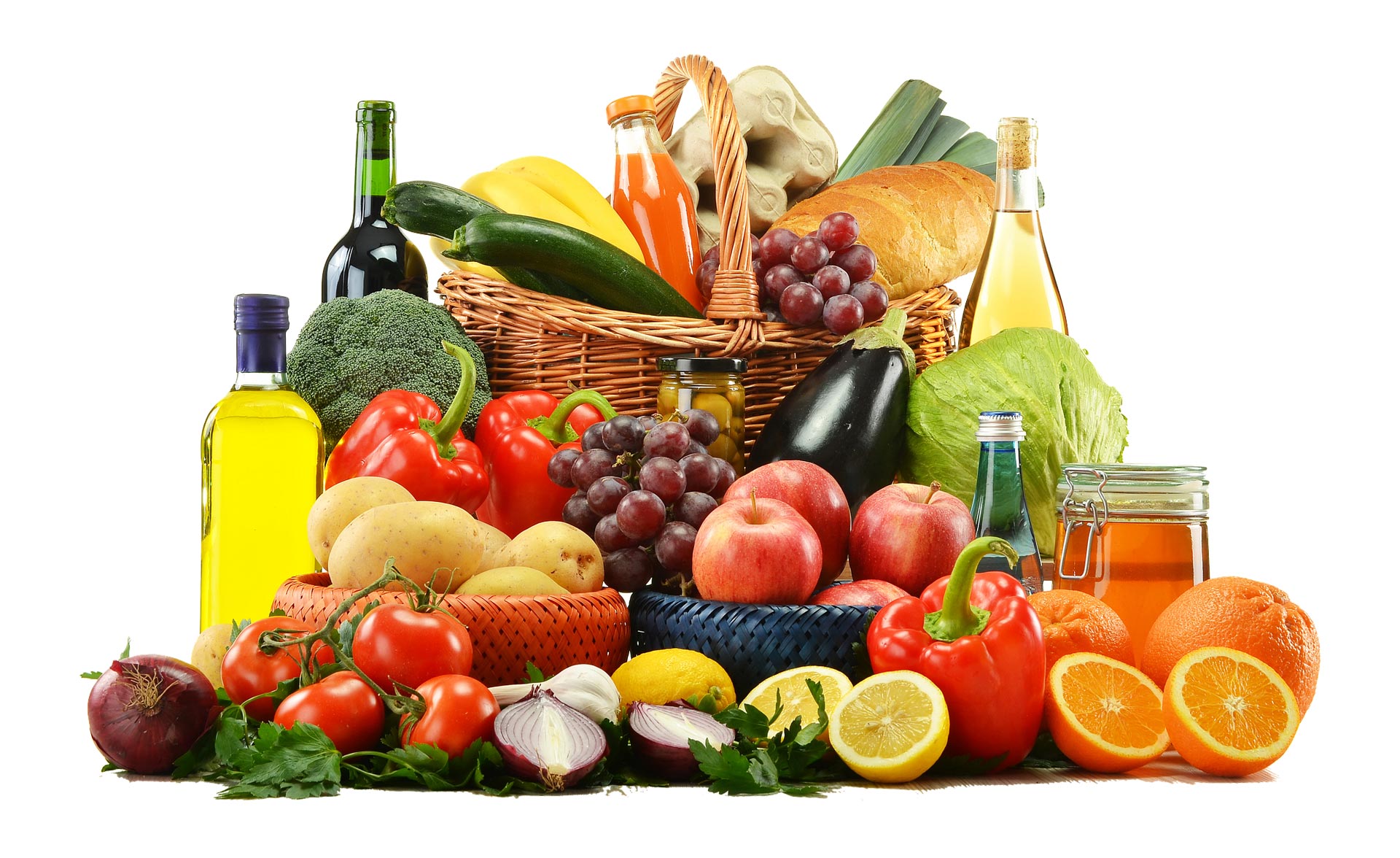Creating a truly healthy kitchen isn't about restrictive dieting or deprivation; it's about stocking your pantry and refrigerator with whole, natural foods that nourish your body and support your well-being. This article outlines the essential ingredients that should always be within reach, ensuring that whatever you choose to prepare will contribute to a balanced and nutritious diet. By focusing on whole, unprocessed foods, you can effortlessly create meals packed with the vitamins, minerals, antioxidants, and macronutrients your body needs to thrive. We'll also touch on some common culprits that are best kept out of a health-focused kitchen. The goal is to make healthy eating not just a conscious choice but a natural extension of your everyday cooking habits.
Prioritizing Protein: The Building Blocks of Health
Protein, providing four calories per gram, plays a crucial role in muscle growth, repair, and maintaining a healthy metabolism. The thermogenic effect of digestion, the energy your body uses to process food, is higher for protein than for carbohydrates or fats, contributing to a metabolic boost. For optimal health, aim to consume a minimum of 0.5 to 1 gram of protein per pound of body weight daily. Those engaging in heavy resistance training or hypertrophy training may increase this intake to up to 2 grams per pound. Distributing protein intake throughout the day, including some with each meal, is a beneficial strategy. Excellent protein sources include low-fat cottage cheese (a casein protein ideal for nighttime consumption due to its slow release), organic eggs (a now-rehabilitated source of healthy saturated fats, best consumed in moderation), lean poultry like chicken and turkey breast, lean cuts of beef (round or loin, limited to twice weekly), tuna (a convenient option), and oily fish like salmon (rich in beneficial omega-3 fats and low in mercury). Other lean meats and fish (over 90% lean) are generally acceptable, but caution should be exercised with large fish like swordfish due to potential mercury levels. Natural peanut butter (with excess oil drained) is a good vegetarian option, but moderation is key. Protein powders, both whey protein (fast-releasing, ideal post-workout) and casein (slow-releasing, ideal before bed), are convenient supplements, but choose natural varieties with minimal added sugar. Beans and legumes, and quinoa are excellent vegetarian protein sources, offering additional nutritional benefits.
Carbohydrates: Fueling Your Body Wisely
Carbohydrates, also providing four calories per gram, are essential for energy. The key is to prioritize low-glycemic index (GI) sources like vegetables, fruits, legumes, and whole grains. These foods provide sustained energy release, preventing blood sugar spikes and crashes. Avoid processed, high-GI foods such as white pasta, white bread, croissants, and biscuits. Aim for a carbohydrate intake of 1-2 grams per pound of body weight, with the lower end supporting fat loss and the higher end supporting muscle gain.
Green leafy vegetables (spinach, broccoli, watercress) are nutritional powerhouses and can be consumed liberally. Other vegetables are also beneficial, but be mindful of higher-GI options like carrots and potatoes. Fruits, especially berries like blueberries, are packed with antioxidants, vitamins, and minerals, but limit intake to two to three servings daily due to their calorie and fructose content. Choose whole-grain bread and pasta over refined versions, and opt for brown rice, yams, or sweet potatoes over white potatoes. Natural yogurt is a good source of protein and can be paired with fruit. 100% rolled oats, consumed with water, cinnamon, and berries, make a nutritious breakfast. Beans, chickpeas, lentils, and other legumes offer a combination of carbohydrates, protein, fiber, vitamins, and minerals. Barley, the lowest-GI whole grain, can be added to oats for an extra nutritional boost. Always check the GI of other grains to make informed choices.
Fats: Embracing Healthy Sources
Fats, providing nine calories per gram, are crucial for various bodily functions. The emphasis should be on consuming healthy fats and avoiding trans fats (found in deep-fried and processed foods). Healthy fats should comprise 25-35% of daily calories. Excellent sources include unsalted, unroasted nuts (walnuts, almonds, cashews), extra virgin olive oil, fish oil (a highly beneficial supplement for cardiovascular health and more), flaxseed/linseed oil, seeds, oily fish like salmon, and avocados. Meat and dairy provide saturated fats, which should be consumed in moderation (limited to 30% of total fat intake). It's crucial to understand that not all fats are created equal. Embracing healthy fats is essential for overall well-being, while avoiding trans fats is crucial for minimizing health risks.
Fiber, Vitamins, and Minerals: The Supporting Cast
By prioritizing the food groups mentioned above, you'll naturally obtain sufficient fiber, vitamins, and minerals for a healthy digestive system and overall well-being. Oats, beans, and fruits are particularly good sources of fiber. A balanced diet rich in whole foods will typically provide the necessary micronutrients. Supplements, such as fish oil and a multivitamin, can provide additional support, but whole foods should be the primary focus. This holistic approach ensures that your body receives the full spectrum of nutrients it needs to function optimally. Focusing on whole foods provides a synergistic effect, with various nutrients working together to enhance their individual benefits.
Foods to Avoid and Smart Substitutions
Ready meals and processed foods should be avoided due to their high content of sugar, unhealthy fats, and artificial additives. If convenience is a necessity, carefully check labels for low sugar and fat content. Beware of misleading marketing claims and scrutinize ingredient lists for artificial additives (E numbers). Fruit juice, while seemingly healthy, is often high in sugar and should be replaced with whole fruit or water. Soft drinks, including diet versions, should also be avoided. Hydration should primarily come from water and herbal tea. Breakfast cereals, often loaded with sugar, should be replaced with bran flakes or 100% rolled oats. Limit or avoid alcohol consumption, as the body prioritizes processing alcohol calories over other energy sources.
Foods high in both fat and sugary carbohydrates (lasagna, french fries, donuts, ice cream, cookies, sweets, whole milk, crisps, chips, deep-fried foods, fast foods) should be minimized. Be wary of foods often marketed as healthy but containing hidden sugars or unhealthy fats (white pasta, white bread, fruit juice, most protein bars, muesli, bagels, flavored oatmeal, crackers, soy products, fat-free snacks, rice cakes, and many low-fat products). Spices are excellent for flavoring meals without added sugars or unhealthy fats, while sauces like ketchup, mayonnaise, and barbecue sauce should be used sparingly. By making informed choices and prioritizing whole, unprocessed foods, you can transform your kitchen into a foundation for optimal health and well-being.
2 Willett, W. C. "Dietary fat and coronary heart disease: a critical review." *The American journal of clinical nutrition* 34.11 (1981): 878-889.
3 Lustig, R. H. "Fructose 2.0: metabolic, genetic, and societal implications of fructose excess." *American Journal of Clinical Nutrition* 91.6 (2010): 1387-1394.
4 Mann, J. I., et al. "Dietary fibre intake and mortality from coronary heart disease and other chronic diseases: meta-analysis of prospective cohort studies." *BMJ* 347 (2013): f6879.













